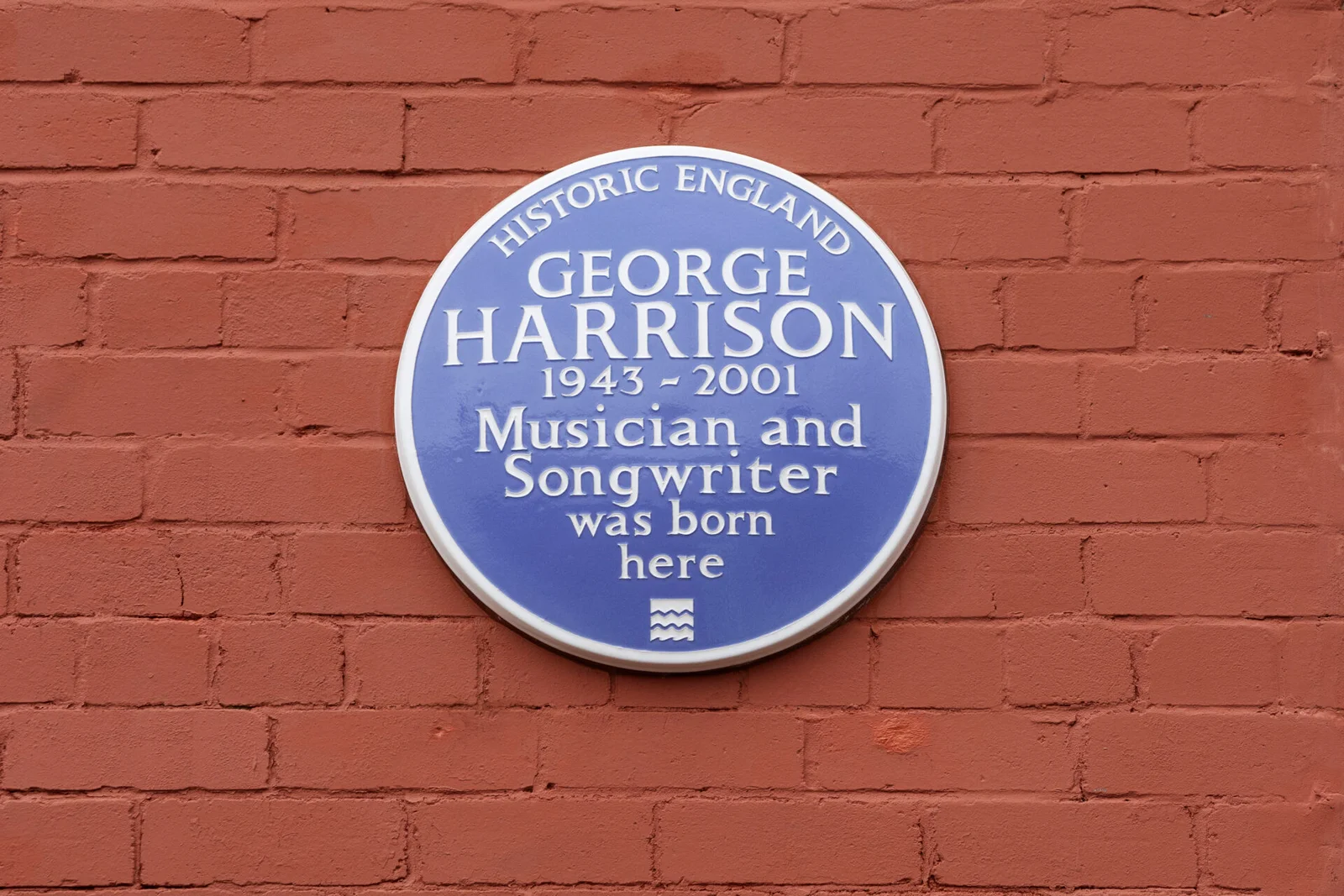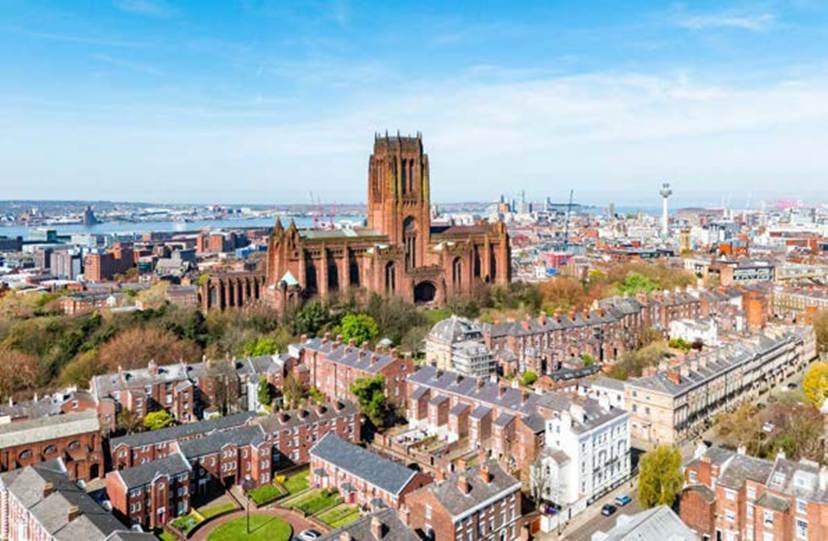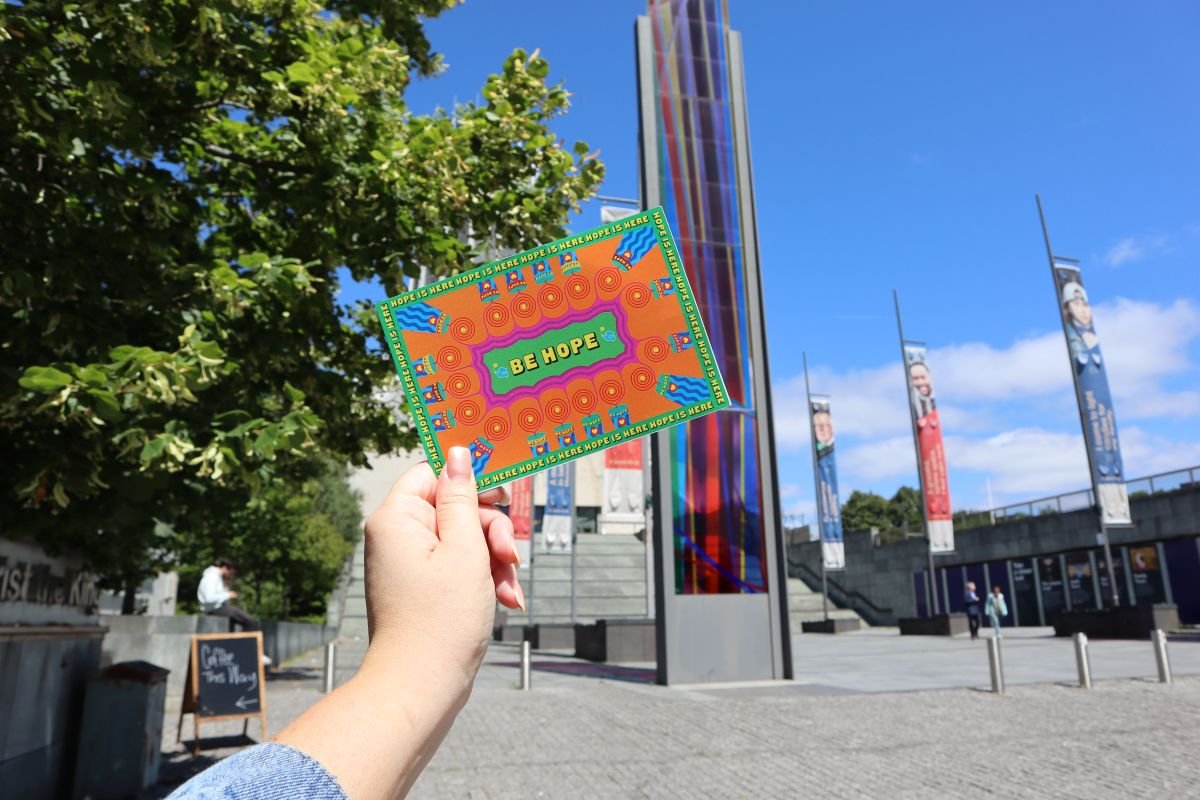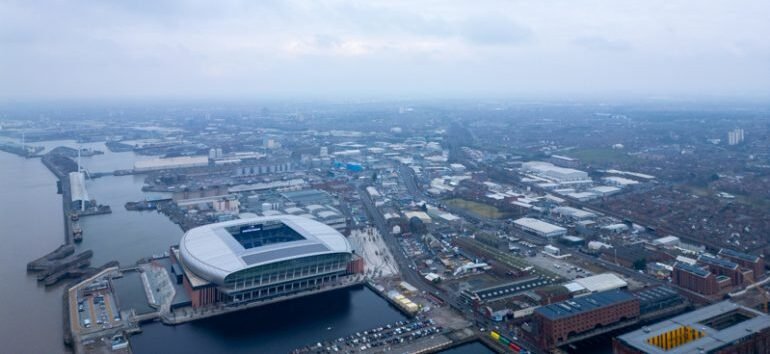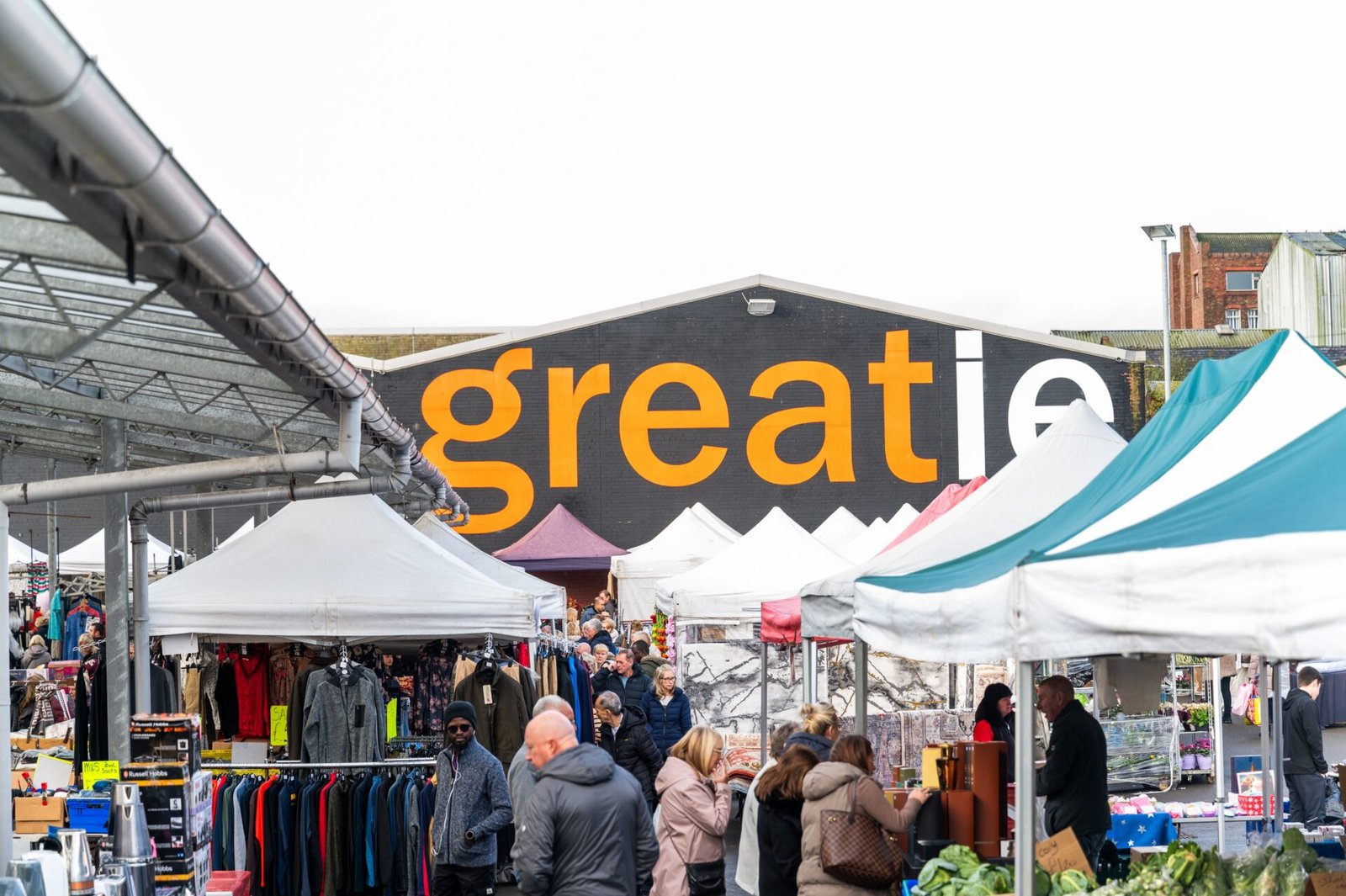Historic England today (May 24) unveiled a national blue plaque celebrating George Harrison, a music icon, songwriter, and humanitarian, at his birthplace, 12 Arnold Grove in Wavertree, Liverpool.
George Harrison, one of the city’s most famous sons, left a lasting impact on British and global culture through music, film, and humanitarian work. Where Harrison was born, in a two-up/two-down Victorian terraced house, George’s wife Olivia Harrison and Historic England’s Chief Executive, Duncan Wilson, will unveil the blue plaque. Journalist and Blue Plaques Panel Member Samira Ahmed will introduce Duncan Wilson.
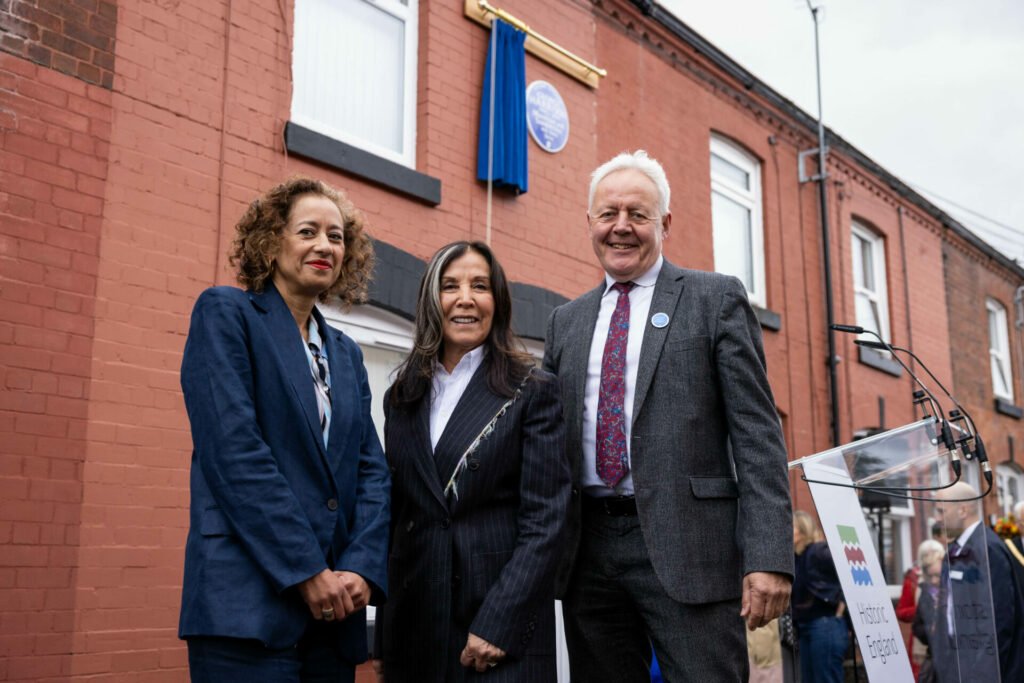
Olivia Harrison, George’s wife, said:
“This blue plaque recognition of George’s birthplace is a source of family pride for all the Harrisons, and something that none of us, mainly George, would ever have anticipated. So much of who George was came from being born and spending his earliest years at 12 Arnold Grove, undeniably a part of who George was. He left a footprint on this world, on this country, in this city and on this street.”
The occasion also marks the start of the eight-week public nomination period for the new national blue plaque scheme. Everyone is invited to submit their own nominations for the person they would most like to see recognised with a prestigious Historic England blue plaque.
Historic England manages the national blue plaque scheme on behalf of the Department for Culture, Media, and Sport (DCMS). The scheme aims to showcase the inspiring tales of individuals from diverse backgrounds who have significantly enhanced human well-being or joy.
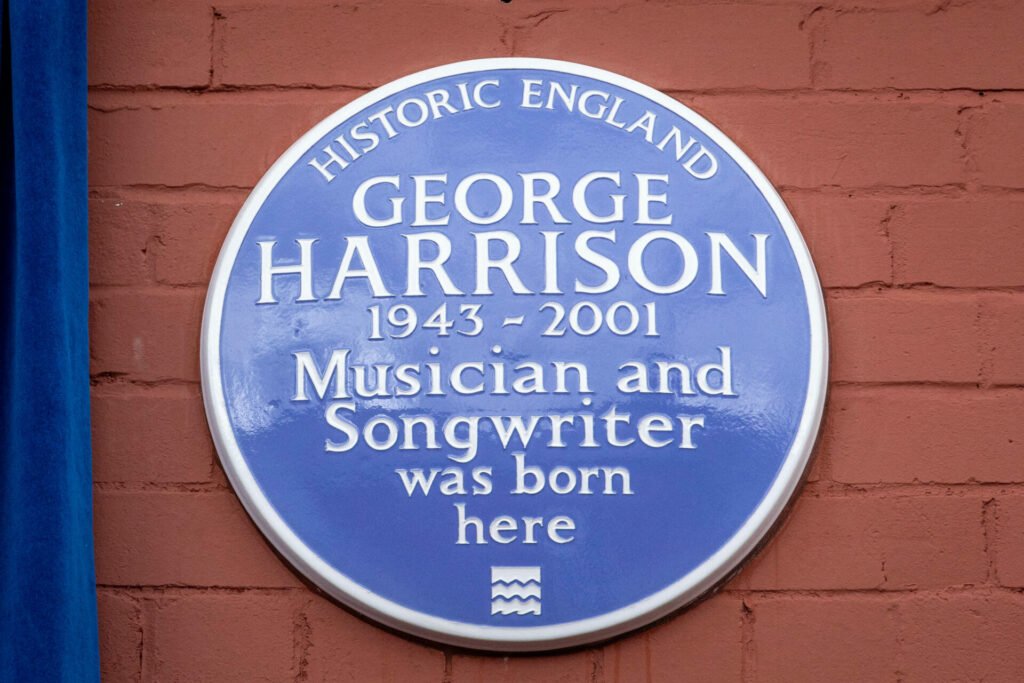
Duncan Wilson, Chief Executive, Historic England said:
“For many years, local residents and fans have longed for a blue plaque marking the place where George Harrison’s exceptional life story began. I am thrilled that we can make that a reality and we are now inviting people across England to submit their own nominations for the person they would most like to see recognised in this way. Blue plaques capture the lasting connection between people and places, inspiring local pride now and for generations to come.”
Culture Secretary Lucy Frazer said:
“For almost 150 years the London blue plaque scheme has celebrated figures from the past, helping the public to learn about and honour the rich history of the capital. Now everyone across the country has the opportunity to nominate the people who shaped their local area.
“There can’t be a more fitting recipient to mark the opening of public nominations than one of Liverpool’s Fab Four, George Harrison. His skill as a musician and songwriter is celebrated all over the world and has inspired many to embark on a career in music, but it is here in the place of his birth that his legacy is strongest felt.
“I encourage everyone to think about the local heroes they want to see commemorated and nominate them for a blue plaque.”
Steve Rotheram, Mayor of the Liverpool City Region, said:
“Throughout his incredible life, George would often come home to Liverpool to re-live the memories that shaped his childhood. His career might have taken him around the world – but he never lost his love for this city.
“He was also a deeply spiritual man who used his platform to spread a message of peace and acceptance, which are values that Scousers are renowned for. It is for that reason that George will always be regarded as one of Liverpool’s greatest sons and it is wonderful to see a permanent tribute to his life in the community that helped to raise him.”
George was born on 25 February 1943 at the two-up/two-down terraced house at 12 Arnold Grove near Wavertree High Street and lived there until he was nearly seven years old.
The family left Arnold Grove in early 1950 as they had finally reached the top of the housing list they’d been on for nearly 20 years.
Public Nominations
From today (24 May), anyone can nominate individuals of their choice for a blue plaque via the Historic England website. This nomination window will close on 19 July.
To be eligible, the person being nominated must:
- Have died at least 20 years ago
- Have made a significant contribution to human welfare or happiness and/or who have made an exceptional impact in their field, community or on society at large
- Have at least one building associated with them that survives well and where a plaque would be clearly visible from a public highway. Blue plaques celebrate the relationship between people and places, for example where they were born, worked, lived or died. Because of this, plaques need to be on surviving buildings where there is evidence of a meaningful connection with the person commemorated.
The full criteria can be found on the Historic England website (link goes live from 24 May). As the scheme develops, nominations will also be open to commemorate groups of people (duos, groups, societies, organisations) and significant events.
READ MORE: FIRST SLAVERY PLAQUE INSTALLED OUTSIDE WORLD MUSEUM LIVERPOOL

